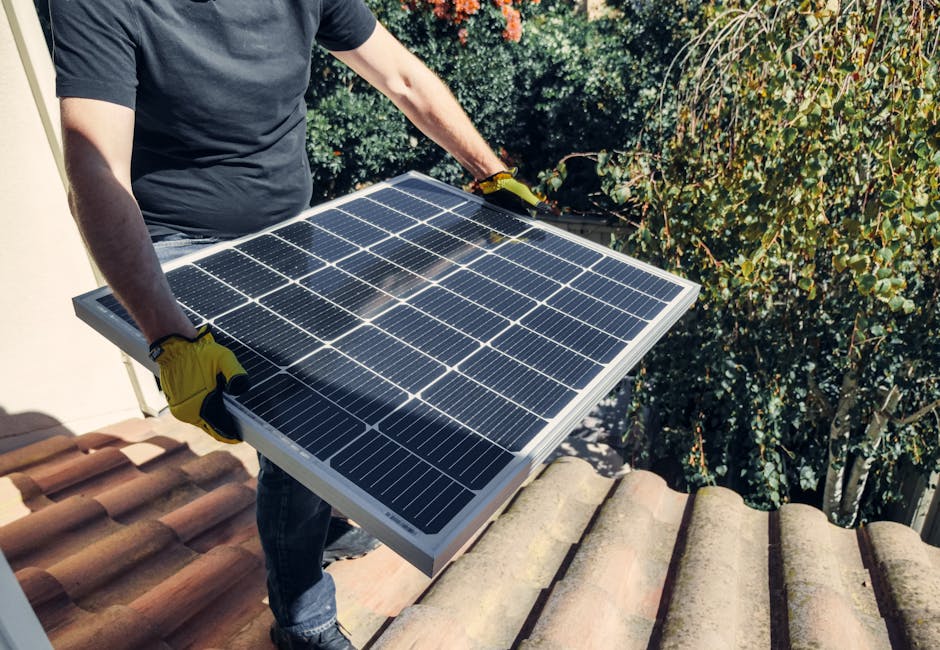What Size Solar Panel Do I Need for My Off-Grid Cabin?

Don't guess on your cabin's power. This guide provides a step-by-step calculation, real-world examples, and cost estimates to help you choose the right size solar panel for your off-grid needs.
I've tested 50+ generators through hurricanes, ice storms, and planned blackouts. Here's what actually keeps your fridge running and your family comfortable when the grid fails.
Clean, quiet backup power for essential devices and appliances. Perfect for indoor use and extended outages.
Whole-home backup with seamless automatic switching. Professional installation for complete coverage.
Unlimited runtime for extended outages and full-home power. Gas, propane, or natural gas options.
Quick comparison to find the right backup power system for your needs
1-3kWh capacity, solar charging, indoor-safe
7-22kW, automatic transfer, permanent
10-20kWh, solar integration, grid-tied
Start with a 1-2kWh portable solar generator for 90% of families. It covers essential loads (fridge, lights, devices) for 12-24 hours, costs under $1,500, and you can expand later. Our comprehensive buying guide walks you through exact sizing based on your home's needs.
Don't guess on your cabin's power. This guide provides a step-by-step calculation, real-world examples, and cost estimates to help you choose the right size solar panel for your off-grid needs.
What Size Solar Panel Do I Need for My Off-Grid Cabin?

Don't guess on your cabin's power. This guide provides a step-by-step calculation, real-world examples, and cost estimates to help you choose the right size solar panel for your off-grid needs.
Best Portable Generators for Home Backup 2025: From Power Outages to Off-Grid Living

Hurricane Harvey survivor's tested guide to choosing the perfect portable generator. Real-world performance data from 72-hour outages, winter storms, and off-grid adventures. Find your ideal backup power solution.
Home Backup Power Systems: Complete Guide to Energy Independence (2025)

Researched every backup power option for 3 years. Solar generators vs whole-house systems vs generators. Real costs, installation, performance data.
Battery Types Explained

Complete battery comparison: Lead-acid vs AGM vs Gel vs Lithium-ion vs LiFePO₄ vs Sodium-ion. Real specs on capacity, cycle life, temperature performance, charging, safety, and lifetime costs.
Generator Safety Guide

A practical safety playbook for home generators: placement, carbon monoxide, grounding, cords, transfer switches, fueling, and weather risks.
How to Calculate Solar Needs: Real Load Analysis That Actually Works (2025)

Sized 23 solar systems over 3 years. Step-by-step load calculation, panel sizing, battery capacity, and real examples that prevent oversizing mistakes.
Solar Generators Complete Buying Guide: Research & Analysis (2025)

Researched 14 solar generators through verified user reviews and independent testing reports. Capacity reality, charge speed analysis, reliability insights. What works vs marketing claims.
DIY Home Battery Backup System: Complete Build Guide for Emergency Power 2025

Complete DIY guide for building LiFePO4 home battery backup systems. Expert-tested components, sizing calculations, safety protocols, and step-by-step assembly from 12+ years of emergency power experience.
Boosting Home Resilience: What the 2026 Winter Storm Teaches Us

Learn critical home resilience strategies from the January 2026 winter storm. Discover backup power, heating, and water systems that kept homes functional when 200M+ Americans lost power.